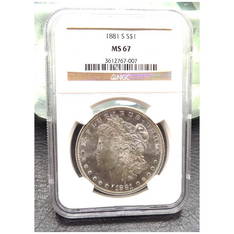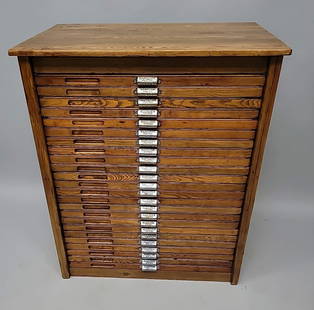
Fernando Zóbel (1924 - 1984)
Similar Sale History
View More Items in PaintingsRelated Paintings
More Items in Gothic Paintings
View MoreRecommended Art
View More


Item Details
Description
Fernando Zóbel (1924 - 1984)
Estudio-Blanco (White Studio)
signed (lower right);signed, titled, numbered 72-38 anddated Junio 1972 (verso)
oil on canvas
24" x 24" (61 cm x 61 cm)
PROVENANCESotheby's, Modern and Contemporary Southeast Asian Art,Hong Kong, 2 April 2017, Lot 328
The celebrated art critic Emmanuel Torres once described Fernando Zobel's visual odyssey as a "progression from the material to the spiritual." This paradigm shift would overtly manifest itself during the 1970s. Art critics generally agree that this decade was inarguably the golden age of Zóbel's artistic ingenuity. During this period, Zóbel would uninterruptedly produce three of his six series: El Júcar (1971 – 1972), La Vista (1972 – 1974), and the lauded Serie Blanca (1975 – 1978). Juan Manuel Bonet writes in the exhibition catalog of Fernando Zóbel: The 1970s: "Eventually they would represent, in simplified structural and schematic terms and as preferred by Zóbel himself, his entire pictorial body of work." This work, titled Estudio-Blanco, is best understood within the context of Zóbel's artistic journey and transition from one series to another. This piece belongs to that period of heightened creativity and exploration of themes and subjects for Zóbel. The artist created this piece concurrently with his landscape series of this period: El Júcar and La Vista. The latter's style is especially evident in this work. Zóbel's biographer, Angeles Villalba Salvador, describes the La Vista series as employing a monochromatic color scheme, with the geometric forms now fundamentally abandoned. In an excerpt from Rafael Perez Madero's Zóbel: La Serie Blanca, the artist was quoted to have said: "In La Vista… I return to monochrome. In a sense, color has been abandoned. Actually, though, what has really disappeared is the background—the idea of painting as black form against a white background. Form and background are now fused. Everything has become background, or, if you prefer, everything has turned into form." Around the time of the creation of this piece, Zóbel had held a one-man exhibition in Cuenca, Valencia, and Sevilla of his El Júcar works and a selection of preliminary studies. Estudio-Blanco manifests Zóbel's unabated experimentation with the relationship among shades, space, and form and his fascination with black and white. It presents Zóbel as an avantgarde who veers away from gestural painting, the mainstream art practice of his time. He executed abstraction in its purest and espoused it as a contemplative art form. Estudio-Blanco is also a progenitor, a foreshadowing of what would be the pinnacle of Zóbel's career—the Serie Blanca. Villalba Salvador describes this series as "characterized by infinitely degraded whites, which distribute spaces, volumes and are lost at the ends of the support—whites that approach blues, grays or browns, merge with the white of the canvas itself or intact paper, making everything become a background. With the White Series, the theme is expanded: light, volume, form, gesture, anatomies, still lifes, and, of course, themes of art history." For Rod. Paras-Perez, the Serie Blanca is "characterized by the dominance of white, or rather, by the dominance of exceedingly light but richly modulated grays animated by accents of black." To the casual observer, Estudio-Blanco may be perceived as a composition done without forethought because of its austerity and minimalism. But here, Zóbel offers the viewer a glance into his creative intelligence. Zóbel's abstraction is remarkably Delphic and perplexing yet meditative and sublime. He submits to a deliberation of his creative impulses, engendering an artistic prowess that is unparalleled and inimitable. In his conversations with Perez-Madero published in Zóbel: La Serie Blanca, Zóbel said: "My own sort of thing is pretty far removed from visceral expression. The fact is that I really don't improvise very well. I can't seem to express myself without first taking thought." In another excerpt from Fernando Zóbel: The 1970s, Zóbel expressed in 1972: "I believe every artist paints in relation to his surroundings, and I have always been surrounded by art history, by works of art. That is my world." (A.M.)
Estudio-Blanco (White Studio)
signed (lower right);signed, titled, numbered 72-38 anddated Junio 1972 (verso)
oil on canvas
24" x 24" (61 cm x 61 cm)
PROVENANCESotheby's, Modern and Contemporary Southeast Asian Art,Hong Kong, 2 April 2017, Lot 328
The celebrated art critic Emmanuel Torres once described Fernando Zobel's visual odyssey as a "progression from the material to the spiritual." This paradigm shift would overtly manifest itself during the 1970s. Art critics generally agree that this decade was inarguably the golden age of Zóbel's artistic ingenuity. During this period, Zóbel would uninterruptedly produce three of his six series: El Júcar (1971 – 1972), La Vista (1972 – 1974), and the lauded Serie Blanca (1975 – 1978). Juan Manuel Bonet writes in the exhibition catalog of Fernando Zóbel: The 1970s: "Eventually they would represent, in simplified structural and schematic terms and as preferred by Zóbel himself, his entire pictorial body of work." This work, titled Estudio-Blanco, is best understood within the context of Zóbel's artistic journey and transition from one series to another. This piece belongs to that period of heightened creativity and exploration of themes and subjects for Zóbel. The artist created this piece concurrently with his landscape series of this period: El Júcar and La Vista. The latter's style is especially evident in this work. Zóbel's biographer, Angeles Villalba Salvador, describes the La Vista series as employing a monochromatic color scheme, with the geometric forms now fundamentally abandoned. In an excerpt from Rafael Perez Madero's Zóbel: La Serie Blanca, the artist was quoted to have said: "In La Vista… I return to monochrome. In a sense, color has been abandoned. Actually, though, what has really disappeared is the background—the idea of painting as black form against a white background. Form and background are now fused. Everything has become background, or, if you prefer, everything has turned into form." Around the time of the creation of this piece, Zóbel had held a one-man exhibition in Cuenca, Valencia, and Sevilla of his El Júcar works and a selection of preliminary studies. Estudio-Blanco manifests Zóbel's unabated experimentation with the relationship among shades, space, and form and his fascination with black and white. It presents Zóbel as an avantgarde who veers away from gestural painting, the mainstream art practice of his time. He executed abstraction in its purest and espoused it as a contemplative art form. Estudio-Blanco is also a progenitor, a foreshadowing of what would be the pinnacle of Zóbel's career—the Serie Blanca. Villalba Salvador describes this series as "characterized by infinitely degraded whites, which distribute spaces, volumes and are lost at the ends of the support—whites that approach blues, grays or browns, merge with the white of the canvas itself or intact paper, making everything become a background. With the White Series, the theme is expanded: light, volume, form, gesture, anatomies, still lifes, and, of course, themes of art history." For Rod. Paras-Perez, the Serie Blanca is "characterized by the dominance of white, or rather, by the dominance of exceedingly light but richly modulated grays animated by accents of black." To the casual observer, Estudio-Blanco may be perceived as a composition done without forethought because of its austerity and minimalism. But here, Zóbel offers the viewer a glance into his creative intelligence. Zóbel's abstraction is remarkably Delphic and perplexing yet meditative and sublime. He submits to a deliberation of his creative impulses, engendering an artistic prowess that is unparalleled and inimitable. In his conversations with Perez-Madero published in Zóbel: La Serie Blanca, Zóbel said: "My own sort of thing is pretty far removed from visceral expression. The fact is that I really don't improvise very well. I can't seem to express myself without first taking thought." In another excerpt from Fernando Zóbel: The 1970s, Zóbel expressed in 1972: "I believe every artist paints in relation to his surroundings, and I have always been surrounded by art history, by works of art. That is my world." (A.M.)
Buyer's Premium
- 22%
Fernando Zóbel (1924 - 1984)
Estimate ₱4,000,000 - ₱5,200,000
6 bidders are watching this item.
Shipping & Pickup Options
Item located in Makati City, Metro Manila, phSee Policy for Shipping
Payment

TOP






































































